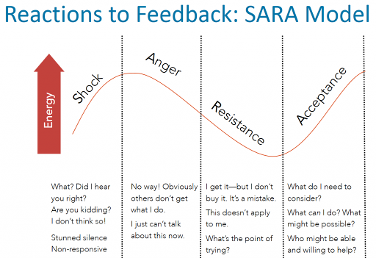Feedback.
Is not simply advice, it is specific information about the comparison between observed performance and a standard, given with the intent to improve performance.
Why give feedback?
- Sense of responsibility.
- Mentoring role.
- Commitment to improving trainee.
- To support and enhance performance.
It should be a partnership / 360
Aspects of good feedback.
- Regular , scheduled.
- Learner centred, establish rapport and set their agenda.
- Given enough time.
- Soon after episode on which it is sought.
- Ideally be based on something observed first hand.
- Specific. give examples.
- Consistent.
- Supportive / constructive.
- Suggestions not prescriptive comments.
- Non judgemental - focused on behaviour / knowledge not personality.
- Justified.
- Honest!
- Stay safe- watch for emotional upset.
- Confidential.
- Interns unmet needs can be a trainers educational needs!
- Should apply only to things that can be changed.
- Says as much about person giving feedback as person receiving it.
Timing of feedback - ensure necessary, right time, right place and right frame of mind.
Guidelines for Receiving Feedback
- Listen to feedback.
- Assume that feedback is constructive.
- Use and consider only those elements which are constructive, and consider them carefully.
- Pause and think before responding.
- Ask to repeat if you haven’t heard clearly.
- Ask for clarification or examples if statements are unclear or unsupported.
- Accept negative and positive feedback positively for consideration, rather than dismissively for your protection.
- Ask for suggestions of ways you might modify or change your behaviour.
- Respect the person giving feedback, and thank them.

Reactions to feedback - can be predicted.
